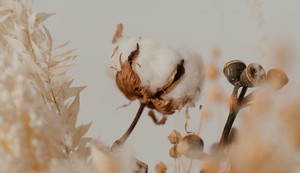- Clothes
- Bags
- Accessories
-
Inspiration
- Shoes
Cotton vs Hemp: What’s More Sustainable? (& A Crazy Story)

If you’re aiming to make more ethical clothing choices (virtual high five), you’re probably trying to figure out what material you should prioritise: cotton or hemp fabric?
Of course, personal preference comes into play, too. For example, you might prefer the softness of cotton clothes or the fact that hemp feels so lightweight.
But to make an informed decision when it comes to hemp vs cotton from an environmental perspective, here’s what you can consider.
What’s hemp fabric?
Hemp is a natural fabric made with the fibres of Cannabis sativa stalks.
While they’ve been cultivated for millennia, it’s become a more popular fabric in recent times thanks to new processes to soften it.
It’s also one of the most sustainable fabrics (you’ll see why soon).
Why is it not as popular as cotton, then?
Because, as well as being tricker and more expensive to produce, hemp is still illegal or heavily regulated in some countries.
In fact, I was shocked to find out that the CEO of 8000Kicks, one of the brands we feature on Project Cece, was arrested during the brand’s Berlin pop-up, and their hemp plants were seized:
“It was a pretty scary moment when the police suddenly appeared at our door. We knew it could happen, but it happening is a whole new game,” Bernardo shared with me. “Also, they were dressed pretty heavily, like intervention police. In the end all went well, because we were confident we were not doing anything wrong. It was just pure activism."
Crazy, right?
But when you go through the benefits of hemp vs cotton, you’ll see why more and more clothing brands are focusing on this fabric right now (even at the risk of getting arrested, apparently).
What’s cotton fabric?
Cotton is one of the most popular natural fabrics, made with the fluffy fibre that grows in bolls around the seeds of this plant.
Unfortunately, despite being natural, conventionally grown cotton is one of the worst fabrics for the planet, especially the kind used by fast fashion brands.
So, if we were to focus on that alone... this hemp material vs cotton comparison would be over pretty soon!
Luckily, nowadays, more and more clothing brands are using a kinder alternative: organic cotton.
For example, in Kuyichi’s words:
“Organic farming is all about a balanced ecosystem, where healthy soils aid clean waters, promoting better development of crops. Organic is better for the people who farm it and for your own skin.”
Cotton vs hemp fabric comparison: which is better for the environment?
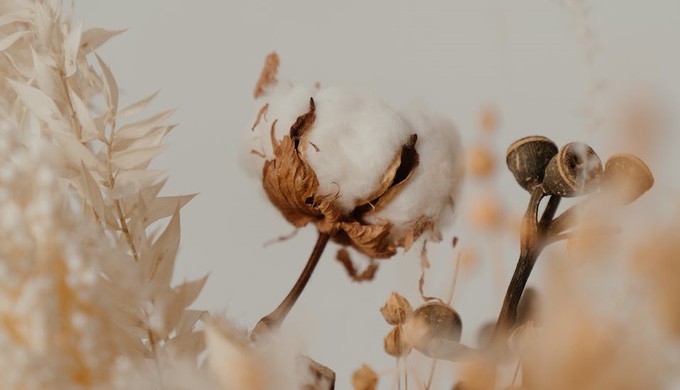
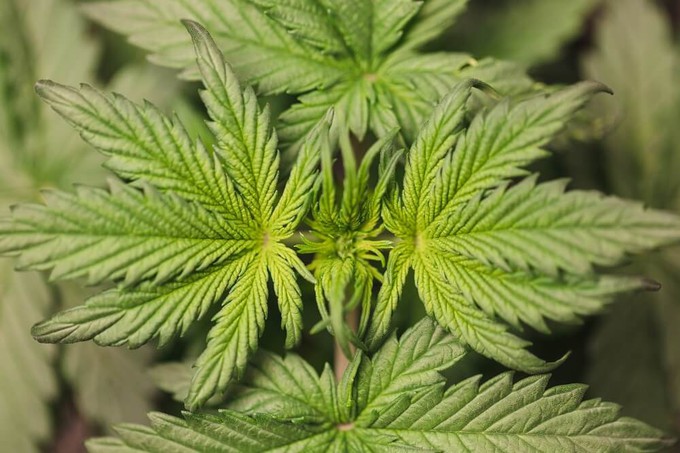
Keep in mind that how it’s produced can make a big difference too. But overall, here’s a simple guide: hemp compared to cotton, from an eco-friendly perspective.
Cotton vs hemp: water usage
Cotton is a thirsty crop: the production of 1kg of fabric requires 20,000 litres. Luckily, organic cotton uses around 91% less water.
Hemp, on the other hand, only uses around 2% compared to traditional cotton (300-500 litres).
It does use a bit more water for retting (= when the fabric is soaked, a step not required for cotton), but it’s still nowhere near as much.
Winner: hemp
Cotton vs hemp: land usage and soil health
Hemp only requires one third of land compared to cotton, and it also returns lots of nutrients to the soil.
Sadly, as well as requiring more land, conventionally grown cotton usually involves herbicide chemicals that deprives the soil of moisture and nutrients (this can make it harder for future crops to grow).
With organic cotton, though, weeding is done by hand, and this can promote soil regeneration.
Winner: hemp
Cotton vs hemp: other production considerations
Some more benefits of hemp is that it absorbs more CO2 during its growth cycle (great news for the climate!), doesn’t require herbicides and pesticides because it’s a naturally resistant and hardy plant, and since it grows so fast (it can be harvested in 3-4 months), fertilisers aren’t needed either.
The only main con is that it requires more processing and additional steps. However, it’s still a carbon negative fabric (= during its growth, it removes more CO2 than what is emitted during its harvesting, processing, and transportation combined).
Cotton is easier to produce. Sadly, it also involves lots of bad chemicals, pesticides, and fertilisers. This can have negative consequences on the environment, the health of farmers, and even yours. Luckily, organic cotton doesn’t involve any.
Winner: hemp, although organic cotton involves a more eco-friendly production than traditional cotton
Cotton vs hemp: durability
Hemp is more durable than cotton, and it’s also more resistant to mold and bacteria (and from a sustainability standpoint, more durable = less waste).
Winner: hemp
Cotton vs hemp: end-of-life and biodegradability
Technically, since they’re natural fabrics, both hemp and cotton are biodegradable.
In practice?
Conventionally grown cotton can release harmful chemicals into the soil when it decomposes, and if it’s mixed with other fabrics (think of polycotton), it loses its biodegradable properties.
Organic cotton and hemp, on the other hand, enrich the soil.
Winner: tie between hemp and organic cotton
So, is hemp more sustainable than cotton?
Overall, yes: hemp is more sustainable than cotton, especially when it comes to conventionally grown cotton.
Certified organic cotton is, however, a much kinder fabric. Choosing recycled cotton is another way of reducing waste and your environmental footprint.
Find your next hemp or organic cotton clothing on Project Cece
Whether you prefer organic cotton or hemp, you no longer have to waste hours searching for brands and trying to figure out if they’re as ethical as they say (or just another fast fashion brand in disguise).
At Project Cece, we bought hundreds of sustainable clothing brands in one place and added filters to simplify your choices.
This includes Material and Certificates: perfect to focus on hemp or organic cotton clothes.
Start browsing to find your new favourite.
Share our story
Related articles
What Is Hemp Fabric? Properties & Sustainability
Did you know that hemp fabric requires 50% less water than cotton and lasts 3 times longer? Discover the sustainable properties of this game-changing material.
Conventional Cotton vs Organic Cotton: Differences & Sustainability
Sadly, natural doesn’t automatically mean sustainable, and that’s the case with cotton. Discover the differences between conventional cotton vs organic cotton!
Is Cotton Bad for the Environment? The No-Fluff Truth!
Spoiler alert: yes, unfortunately it is. Find out exactly how cotton is bad for the environment (and discover its more ethical alternatives).
Project Cece is a platform that collects ethical fashion from vetted brands and shops in one place. Browse ethical fashion for women and men and find items that fit your style, budget and values!
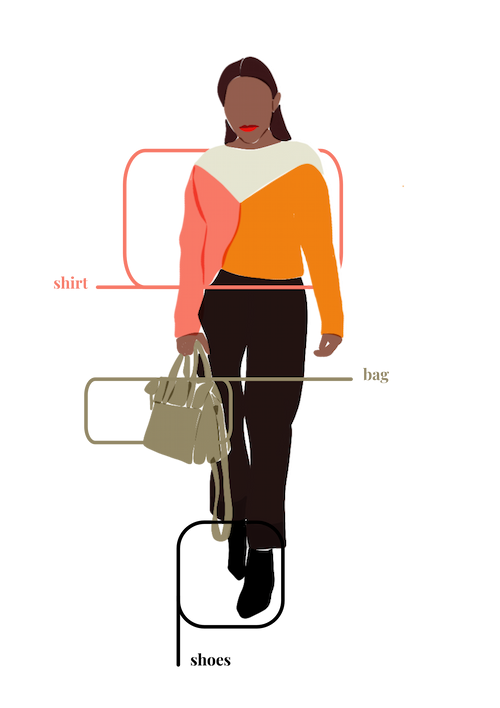
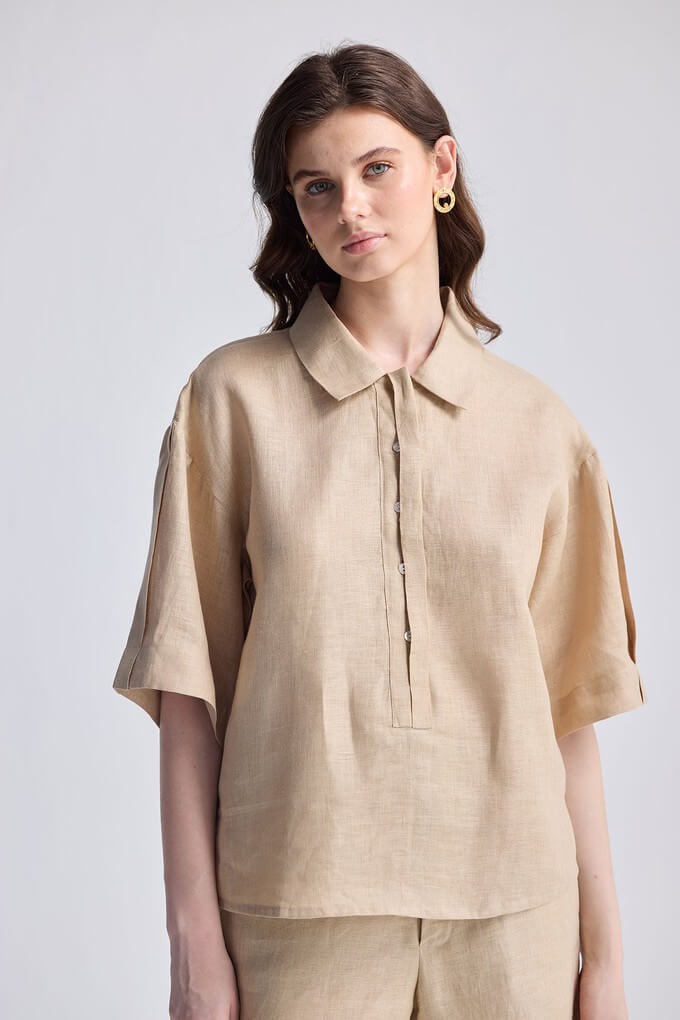
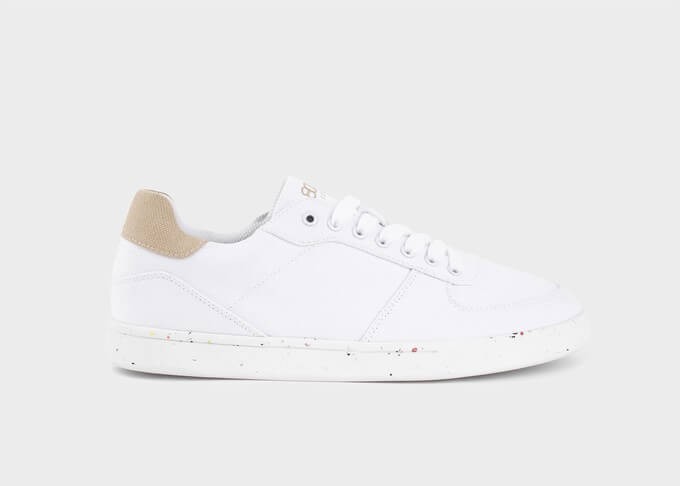
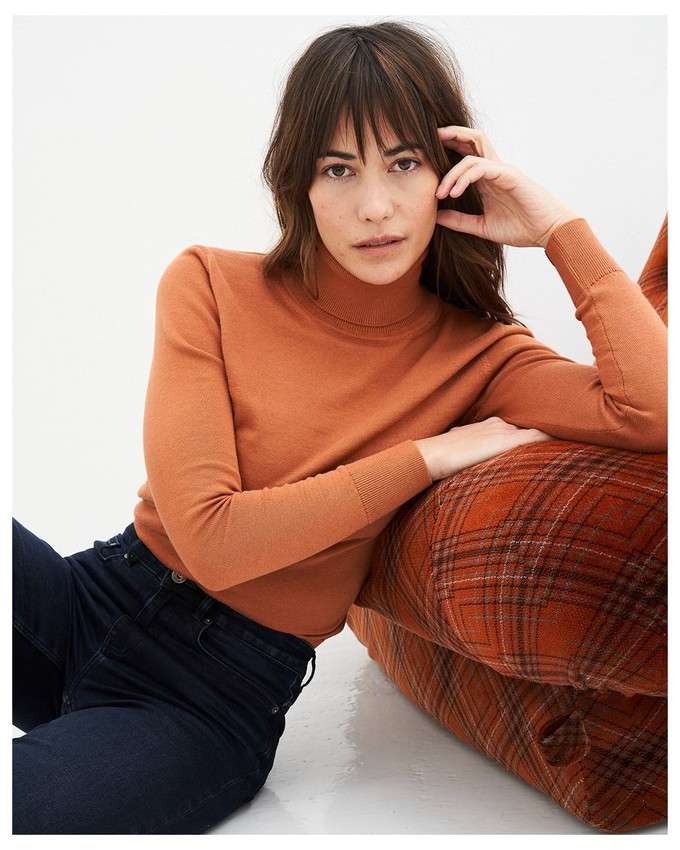

_large.png)


